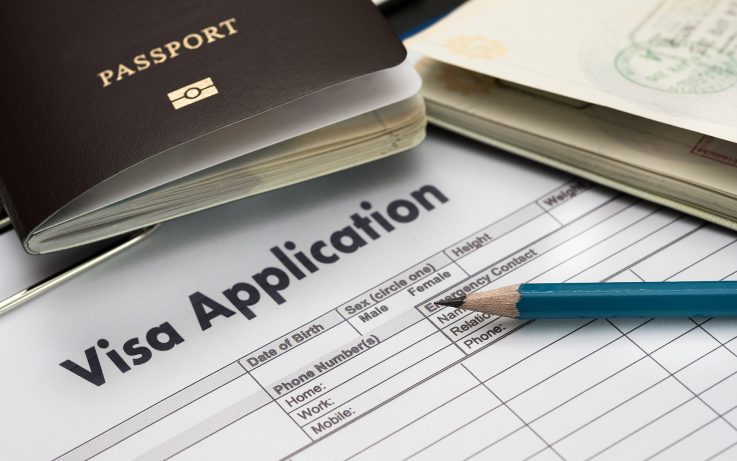Emigration, Immigration and Migration: Shedding light on dfferences

Nowadays, such words as “emigration”, “immigration” and “migration” have come into common use. People have become less confined to one place of residence and are constantly moving from one country to another in search of a better life. One of the most attractive countries for immigration is Great Britain. In this article, we will talk about the difference between immigration, emigration and migration. We will also discuss the concepts and types of migration.
Basic definitions
Emigration is leaving the homeland for a temporary or permanent residence in another country. Those who leave their country are emigrants to the public authorities in that country.
Immigration means entering another country for a temporary or permanent residence. For example, immigrating to the UK means that you become an “immigrant” for this country.
Migration is the impersonal movement of people or animals from one place to another, whether it is internal or cross-border.
Migration
Historically, the development of civilizations and the emergence of first states stimulated the process of migration. In ancient times people moved in search of better living conditions, and new territories for crop and livestock farming. In the Middle Ages, migration was associated with the spread of Christianity and trade development, and later with the colonisation of new lands and the industrial revolution.
Today, migration is a worldwide trend. People move to other countries for political, economic, social, or personal reasons. For example, people may migrate to the UK to find a higher-paying job or to study at a top university.
Migration can also be caused by conflicts in the country, unfavourable economic situation, or natural disasters.
According to the International Organization for Migration (IOM), the number of international migrants is expected to exceed 280 million in 2022.
| 2000 | 2022 | |
| Estimated number of international migrants | 173 million | 281 million |
| Estimated share of migrants in the world’s population | 2.8% | 3.6% |
| Estimated share of women among international migrants | 49.4% | 48.0% |
| Estimated share of children among international migrants | 16.0% | 14.6% |
| Region with the highest proportion of international migrants | Oceania | Oceania |
| Country with the highest share of international migrants | United Arab Emirates | United Arab Emirates |
| Number of migrant workers | – | 169 million |
| Total international remittances (in US dollars). | 128 billion | 702 billion |
| Number of refugees | 14 million | 26 million |
| Number of internally displaced persons | 21 million | 55 million |
Although immigration is not uniform throughout the world, there are certain “migration corridors” that have been formed due to political, economic, demographic, geographic, and other factors.
Migration corridors
These are the routes followed by people while moving from one country to another. The largest corridors usually lead from developing countries to developed countries with advanced economies. Among them, the largest are Mexico – USA, Syria – Turkey, India – UAE, etc.
There are the following types of migration:
- Permanent or Temporary
People may move to another region or state for permanent residence or temporary work and/or study.
- Internal or External
People may migrate to other domestic regions or move to other countries.
- Mass or Personal
People may also move en masse from one region or country to another because of natural disasters or political changes. Moreover, people may migrate individually for personal reasons.
- Seasonal or Circular
Seasonal migration means that people move to another country every year for a short period of time, not exceeding a few months. This type of migration may involve working in seasonal industries such as agriculture and tourism. Circular migration involves regular (often daily) movement of citizens to other localities for work and/or study.
- Legal or Illegal
To keep it simple, people should migrate to another country following the letter of the law of this country. People who relocate illegally risk being deported back to their homeland or being harshly penalised.
- Voluntary or Forced
Resettlement can be voluntary or can happen under the necessity of circumstances (e.g. due to natural disasters, economic crises, military conflicts, etc.)
Emigration and immigration
Emigration and immigration are the main types of external migration. It is important to stress that the differences in these concepts lie in their etymology. The word “emigration” comes from the Latin word “emigratio”, which means “departure”. It consists of the prefix “e-”, meaning “from”, and the word migratio (“resettlement”, “transition”). Thus, “emigration” is the departure and resettlement from one country to another.
The term “immigration” comes from the Latin word immigratio (“arrival”, “entry”). The prefix “im-” means “into”, “in”, and so “immigration” is moving to another country.
Meanwhile, people emigrate and immigrate for different reasons. They are often guided by a desire to improve their living conditions. Some people are looking for better work opportunities, education, or business development. Others may leave their country because of political or religious repressions, war, or conflict. Depending on the reasons that cause moving to another country, the following types of immigration can be distinguished:
- Work Immigration
This type of immigration means moving to another country for work. It is often caused by a labour shortage in certain industries or high wages in this region. For example, many qualified specialists migrate to the UK using a UK Skilled Worker visa. Experienced immigration advisors can share full details of this option.
- Business Immigration
Some immigrants move to another country to set up or purchase a business and further invest in it. In this regard, various schemes and special-purpose visas (e.g. Innovator Founder Visa, Global Talent Visa, Global Business Mobility group visas, etc.) may be available within business immigration, which allow foreign investors and entrepreneurs to obtain permission to work and reside in the UK. Competent experts will help you choose the right type of visa based on your situation and experience.
- Political Immigration
It is not uncommon for people to move to another country because of political repressions and/or threats to their lives. Speaking about political immigration, migrants can be granted asylum if they can prove in court that they were persecuted in their home country because of political beliefs, race, religion, sexual orientation, etc.
- Economic Immigration
Economic immigration means that people move to another country to improve their economic status, to find a job or to better business conditions. Economic (or investment) immigration may also refer to the resettlement of a person to another country to obtain citizenship by investing in the country’s economy.
- Religious Immigration
It is common for people to immigrate because they belong to a particular religious group. Sometimes, their religious beliefs cause persecution or discrimination in their home country. In such a situation, immigration to the UK may be a suitable option, as the UK has a clear mechanism for protecting human rights and freedoms. According to the Human Rights Act 1998, every citizen has the right to freedom of thought, conscience, and religion.
- Environmental Immigration
Such environmental problems as sudden climate change, pollution, drought or flooding generate this type of immigration. People are forced to move because they are threatened by unfavourable living conditions.
- Cultural Immigration
People also immigrate to immerse themselves in a particular culture, learn a language, traditions, art, etc. The United Kingdom undoubtedly has a rich cultural heritage. Many people move here to learn the history of the country from the inside and better understand its inhabitants by being immersed in the English-speaking environment.
- Military Immigration
Military immigrants are those who escape from military activities or who are persecuted by the government or military organisations. This type of immigration also involves moving to another country to serve in the army or other military organisations.
Emigration and Immigration – Pros and Cons
Before deciding to immigrate, you need to weigh all the pros and cons of changing your place of residence and analyse what difficulties you will have to face. We will list some of them:
- Language Barrier
One of the biggest challenges in adapting to a new country is the language barrier. When planning your relocation, you need to be sure that your language level is sufficient for living in the country. Once you arrive you have to be able to quickly improve your language skills by taking extra classes and communicating with locals. - Problems with Paperwork
Immigrants may encounter problems while obtaining official documents such as visas, work permits, residence permits, or citizenship. First and foremost, you must understand the conditions for obtaining such documents. The immigrant must bear in mind that if errors are found in the documents, they may face deportation. - Discrimination
To make matters worse, immigrants may face discrimination based on race and nationality. This can come in many forms such as denial of employment, limited or no access to accommodation or education, negative stereotypes and prejudices, and more. To fight discrimination, immigrants need to seek help from governmental organisations that protect migrants’ rights. - Separation from Family
Speaking about emotional difficulties, separation from family and friends can be considered one of the hardest aspects of immigration. Being deprived of social support, migrants may feel disconnected from their roots and culture and may feel nostalgic for their homeland and loved ones.
However, if you plan your immigration process out thoroughly and bear all possible problems in mind, this will help you improve your living conditions and open up new opportunities. Here are some benefits of immigration:
- New Cultural Experience and Knowledge
Immigrants can gain unique experiences, and learn new cultures, traditions, and languages. This will help expand their horizons and improve their cross-cultural communication skills.
- Improved Living Conditions
Many immigrants seek to relocate abroad to access better healthcare, education, and dwelling. As a highly qualified specialist, you can find a job in any country and improve your quality of life and financial situation.
- Better Work and Education Opportunities
What immigration can enrich you with is gaining new knowledge, skills and education, as well as developing a career in a new country. Many states have programs for immigrants to help them get an education or find a job in their industry.
- Improving International Relations
Immigration can improve international relations as it allows people from different countries to get in contact with each other and share experiences and cultural values. This improves intercultural understanding and tolerance, which in turn helps to develop friendly relations between nations.
Whatever the reason for your move to another country, you can always seek assistance from highly qualified advisors. They will support you professionally so you can focus on realising your plans.
FAQs about emigration, immigration and migration
What is net migration?
The net migration of a population is the difference between the number of immigrants arriving in a country and the number of emigrants leaving. For example, net migration in the UK hit record levels in 2022. According to the Office for National Statistics (ONS), in June 2022, net migration was 504,000 people.
What is re-emigration?
Re-emigration is the process of emigrants returning to their home country after living abroad for a long period of time.
What is deportation?
Deportation means expulsion from a country because of a violation of public laws or regulations.
What is an ethnic enclave?
An ethnic enclave is a small territory of a state which is populated by members of one ethnic group.
Ethnic enclaves are often found in large cities. The reason for this is that immigrants tend to settle in the same area to adapt more easily to life in a new country.







